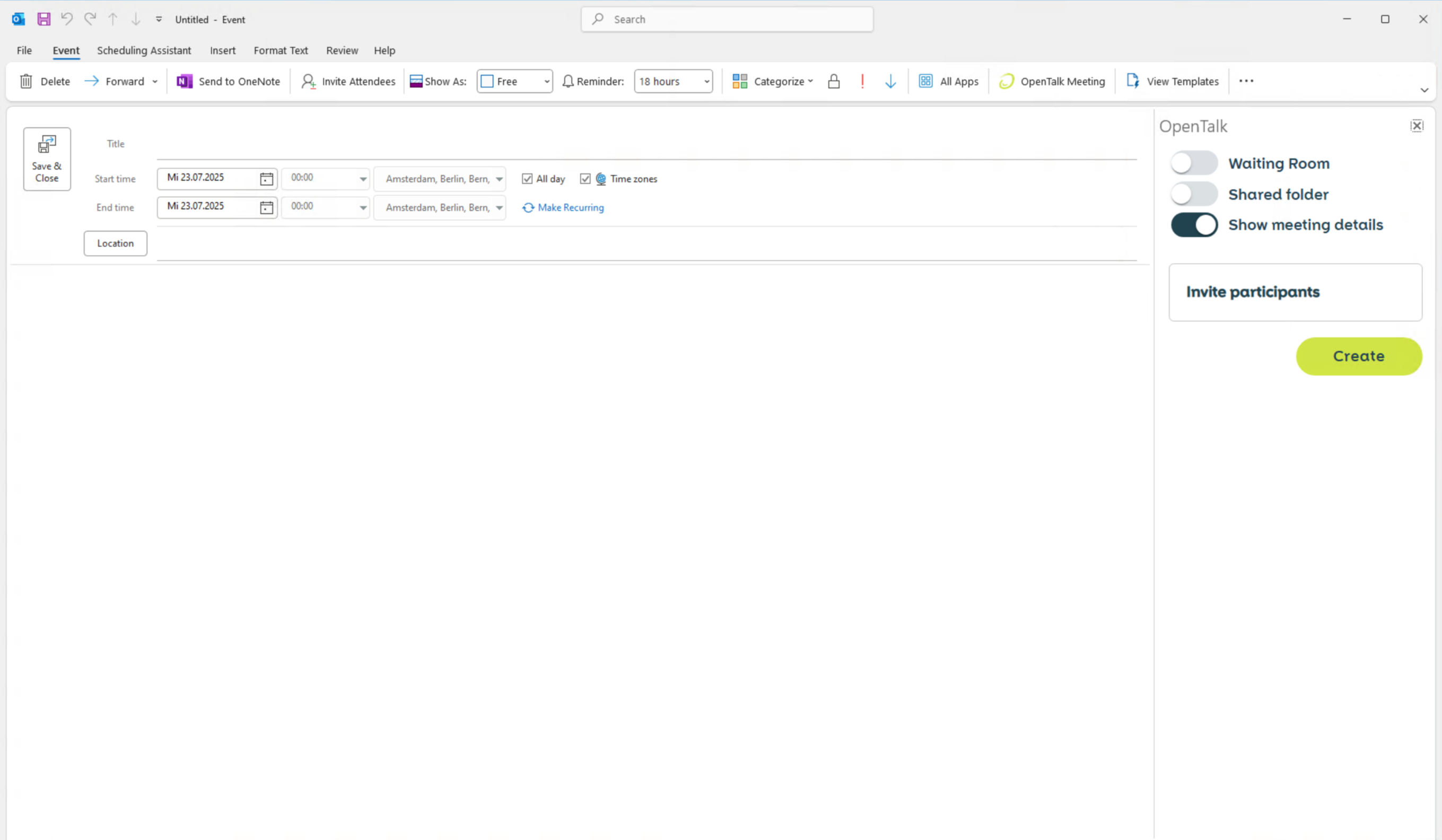OpenTalk Outlook Add-In: Video conferencing integration

OpenTalk has redesigned its Outlook add-in. The aim of this further development is to create a long-term, cross-platform solution for scheduling video conferences directly from Outlook, regardless of the operating system or Outlook client.
Technology change: Response to Microsoft's change of direction
The previous version of the add-in was based on COM technology, which Microsoft will no longer support as of Outlook 2024. At the same time, support for Outlook 2016 and 2019 will end in October 2025 with the discontinuation of Windows 10. Against this backdrop, we will be relying on an iframe-based architecture in the future, which corresponds to the current state of Outlook add-in development.
This change not only improves maintainability, but also extends compatibility. The new Outlook add-in is cross-platform—it works on Windows, macOS, and the web—and is compatible with both older and newer versions of Outlook.
Docker-based deployment: Controlled integration into enterprise infrastructures
Instead of a direct download, the add-in is now provided as a Docker container. This deployment method supports controlled and traceable integration into existing IT environments.
Microsoft provides various deployment options: Installation can be performed via the Exchange Admin Center, the PowerShell command line, or the Microsoft 365 Admin Center. Both URL-based and file-based installations are possible, which is an advantage for organizations with different deployment strategies and role models.
The Docker-based architecture offers additional benefits in terms of security and scalability. Containers can be run in isolated environments and managed centrally, which supports both security policies and maintenance efficiency.
Features: Direct management of OpenTalk meetings in Outlook
The add-in allows you to create, edit, and delete OpenTalk video conferences directly in your Outlook calendar. Relevant information such as title, description, time periods, and participants are entered in the appointment window and managed there.
An automatically generated participation link is inserted in both the description text and the location field. This allows direct access to the video conference from the calendar overview—without any additional steps or search effort.
Note: Customize Outlook default behavior & availability
By default, Outlook automatically adds online meetings (e.g., Microsoft Teams) to each new appointment. To avoid duplication, we recommend disabling this feature when using OpenTalk as your conference solution. The option is located in Outlook under “Calendar > Events and Invitations” and is called “Add online meeting to all meetings.”
The new Outlook add-in is currently only available for OpenTalk On Premises. The reason for this is the Docker-based deployment, which enables targeted integration into company-owned infrastructures.
Technically prepared for future requirements
With its iframe-based architecture, Docker-based deployment, and extended platform support, the new Outlook add-in is a future-proof solution for planning and conducting video conferences. IT managers benefit from greater flexibility in integration, while users enjoy seamless integration into their familiar calendar workflow.
More articles
Digitaler Staat 2026: Digital sovereignty for the administration of the future
OpenTalk will once again be represented with its own stand alongside OpenCloud, presenting solutions for secure, scalable and sovereign video conferencing systems.
Secure video conferencing with OpenTalk: Technical measures for administrators
OpenTalk, the European video conferencing solution, offers administrators a customisable, scalable and secure platform that is specifically tailored to the needs of public authorities and businesses.